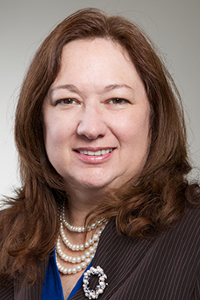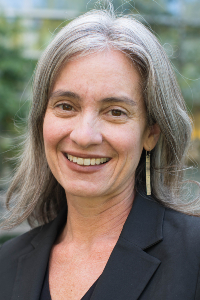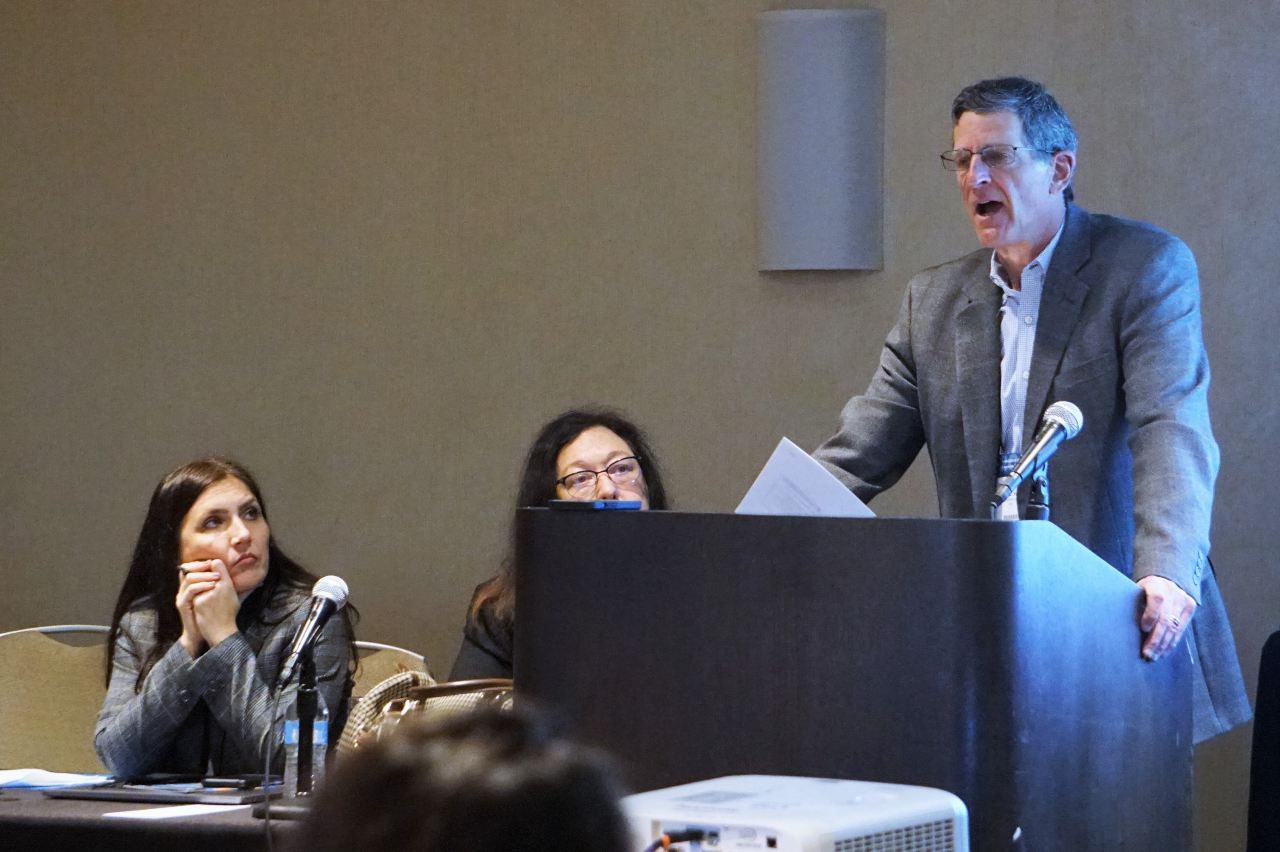By Zaena Ballon
As part of the ongoing “Spotlight on Sections” series, AALS sat down with the leadership of the Section on Communications, Media, and Information Law for a Q&A. The section promotes the communication of ideas, interests, and activities among members and makes recommendations on matters of interest in the teaching and improvement of the law relating to mass communications.
Chair: Catherine J. Sandoval, Santa Clara University School of Law
Chair-Elect: Erin Carroll, Georgetown University Law Center
 Catherine J. Sandoval, Santa Clara University School of Law
Catherine J. Sandoval, Santa Clara University School of Law  Erin Carroll, Georgetown University Law Center
Erin Carroll, Georgetown University Law Center Catherine J. Sandoval: I started by attending some of the sessions and, when I was a junior faculty member, worked with the Section Leadership to help organize some sessions. I found it was a great way to bring people together, including practitioners who were not always full-time academics or people in the social sciences, so that we could really learn from the broader group of people working on communications, media and information law issues. And many of us were also actively filing comments with the Federal Communications Commissions. It was a really great place to be able to discuss and bring attention of these issues to the larger AALS membership.
Erin Carroll: For several years I’ve been involved with the section on legal writing, reasoning and research, a natural home for me given that I teach in that area. But being part of that section made me realize how much a section could really accomplish. It has a very large and active membership and it won the section of the year award in 2020. And this section, the communication, media and information law section felt like another natural home for me. I’m a former journalist and all of my scholarship focuses on the press, privacy, transparency, and often, technology. When I went to AALS meetings, I would naturally find myself drawn to whatever session this section was holding and at one point, I just went up and introduced myself to the leaders of the section. Ever since then, I’ve had great relationships with them and they’ve been really welcoming of me and encouraging me to serve in a leadership role.
CJS: On leadership, Dean Len Banes let me know that he was nominating me for a leadership role. I appreciate the invitation of others to step into that role, but it’s also taught me that sometimes, we need to invite ourselves. If you’re interested in the topic, you don’t have to wait for somebody else to say, “Hey, you’ve got a lot to say, you should be a leader.”
I went to a leadership institute luncheon several years ago that was run by an organization called Hispanas Organized for Political Equality. Some academics had done some research and they found that, for example, on boards commissioned or becoming elected leaders, women tended to wait for somebody to invite them to apply, whereas men would often volunteer even when women had superior qualifications. [Recognizing leadership is] part of what we can do, but if you’re interested in this area, just step up and let us know.
EC: We have a chair, chair elect, and secretary. Our treasurer position is vacant. We also have a 14-member executive committee group and a lot of the members of the executive committee are previous officers. So, it contains wonderful and esteemed scholars in the area that can help advise us on anything that comes up.
EC: The areas of law that people are involved in are vast. We run the scope of communications, media, information law, press law, transparency, and privacy. Like many sections, people are members even if they have a tangential interest in something we’re doing.
I think our section is at the crux of so many interesting issues happening right now that almost everyone has some foot in what we’re doing. It would be nice to collaborate more with other sections.
CJS: This is part of why we changed the name of our section, to broaden it. We were Mass Communications before, but people often think of mass communications as radio, television, cable, and satellite, and it still is. But with the growth of the internet and looking at communications as an ecosystem, we wanted to encompass communications media and information law. People in this section work on all of these facets. An increasing number of people work on things related to the internet. We also have people involved in regulatory law and analysis.
This section reflects a part of our society, which is critical infrastructure. The federal government has identified both communications and energy as two especially important bits of critical infrastructure because they are engines for the rest of society. We’ve tried to create a section that brings together scholarship related to those issues.
EC: We could probably do more as a section. There are cohorts that share scholarship informally, but it would be nice to have a more organized way of doing this. That’s something we can think about doing in the upcoming years.
CJS: In the past, we’ve had a wide range of AALS topics, some of which have invited presentations about recent works. This year, I think a number of us were also very busy. There was a very large conference that the University of Houston held in conjunction with Georgetown and Free Press on race, racism in the media where a number of us participated. Sometimes support is also making people aware of opportunities like that. I think we can do a combination of making people aware of conferences that other people are organizing and also providing opportunities. I know I appreciate opportunities for workshops. That could be something we could also do informally, perhaps mid-year, as well as other calls for papers to support scholarship.
EC: I think this is one of the most dynamic and interesting areas of law to be immersed in right now. For me particularly, I’m interested in how we create a free press that serves democracy and how law can be used in service of that goal. But that relates to many other ongoing discussions. It relates to questions of privacy and what has been called “surveillance capitalism” or “informational capitalism.” It relates to the impact of platforms, specifically social media platforms, on news and information. And this includes thinking about platform governance and content moderation. It also relates to government transparency, which has been in the news a lot and is another hot topic.
Importantly, for purposes of the next AALS meeting and incoming president Mark Alexander’s theme of defending democracy, I think the issues at the forefront of our section align nicely.
CJS: There’s international attention to these areas, and it’s important for us to be cognizant of that as scholars and to make sure that our students are aware. When I teach communications law, I also teach a component of antitrust. Often, you see mergers in these fields – it’s not like broadcast television and the internet are separate. They are all part of one ecosystem, although there are a variety of powerful actors. The analytical tools used in competition law or antitrust law are very important. And the tools used in Europe and, increasingly, around the world, are diverging from the tools used in the U.S.
Europe has done a lot recently, passing rules on platform responsibilities, especially for misinformation. Surfacing that in American legal education is important; we have to guard against being insular as legal educators. I always tell my students, “Your clients are doing often doing business, internationally sometimes whether they realize it or not.” It’s a very vibrant area where we’re seeing increasing attention and governance all over the world.
EC: I started teaching the class [on free press] because that’s my area of scholarship. It’s my area of scholarship probably because you write what you know, and I’m a former journalist. I think one of the reasons Georgetown was interested in the class is because it intersects with many issues at the forefront of policy and law. I’m in D.C., too, there’s especially a lot of thinking about those things here.
EC: Social media is intricately intertwined with the scholarship of many people in our section. It’s obviously the way we communicate and get information right now. It’s been compared to a new public square. It is the distribution system for much of our media. Our section being communication, media and information law, social media platforms cannot be ignored. I think all of us are interested, a lot of us are writing about it, and it’s impacting a lot of the thinkers in this section.
CJS: The question is, how do we square the issues with the constitutional and legal structure? You’re seeing a number of efforts to police what some of these platforms are doing, but they’re private platforms. So we’re running into a classic jurisprudence issue where even the Supreme Court has said social media is functioning very much like the modern public square. They said there is no debate, now, about what the square is: it’s social media. At the same time, they have refused to treat it as a public forum and thus to open up the constitutional door to regulation.

Section on Communications, Media, and Information Law session at the 2023 AALS Annual Meeting in San Diego.
Again, this is a current topic of litigation before the Supreme Court. We also have some people arguing that some platforms are engaging in bias because they’re enforcing content moderation. But these are private forums that have adopted rules. Our constitution has a different structure when you’re dealing with private actors saying what kind of speech may be said in their private form versus when it’s by the government.
CJS: We had speakers who addressed non-U.S. interference, not just in elections but, increasingly, targeting of U.S. populations in part to foment racial divisions of perceived racial or ethnic or ideological divisions for various incendiary political ends. We had two scholars from very, very different viewpoints talk about that.
It’s very important how we recognize that the communications, media, and information ecosystem is as global as it is fragmented. But to see that globalization leveraged to contribute to defamation is one way of fomenting division and dis-serving democracy. We also talked about platform regulation and some constrictions with platform regulation and defamation.
We co-sponsored [a program with] the Section on Defamation which asked, is defamation law really a sufficient tool to deal with what we’re experiencing in the media? We picked this topic because we have a number of large defamation cases going on right now in the media—Alex Jones, the case going on about Dominion. It begs the question of what, if anything, is the FCC doing about this? They have a policy on news slanting, but it’s never been adopted as a formal rule and it’s a really old policy. So the FCC, despite the requirement that broadcasters have to operate in the public interest, has been silent on this issue. We wanted to make that link between defamation and democracy as well as the public interest.
We also deliberately brought in somebody from a communication department—Caitlin Carlson at the University of Seattle. I think it’s important to be able to bring together people in communications with the legal part of the communications field. There are only a few conferences that do that, so this was an opportunity to develop that cross-disciplinary understanding.
EC: Simply reach out. I, for one, would love to grow the section, and to hear from those who are new or who’ve been in it for a while about how the section could enhance their work. I encourage people to reach out and to think about being in leadership or joining the executive committee. We certainly would like to have a full slate of officers next time around. We’d love to have more people join Section Leadership as well.
EC: We’ve talked about creating a section award. Numerous other sections have awards honoring new scholars or established scholars or lifetime contributions. I’ll be reaching out to our executive committee to consider whether this is where we want to put our energy, and what kind of award we’d want to have. I’m also committed to putting together a compelling panel on how media, communication, and information scholars can respond to this call of defending democracy. Again, I think our section is tailor-made to respond to this theme and I want to in a powerful way. Especially since the conference is in D.C. and there will be many folks who can speak to this authoritatively, effectively, and productively. I would like it to be a generative conversation because we all know there’s a lot of work to do.
CJS: I think if we have the bandwidth to support a workshop for papers and development, that’s really helpful. You need that learned feedback and those milestones. We’re not trying to be a law review, but having that place for an open and learned dialogue for ideas and development can really help people to develop timely scholarship as well as regulatory input.
I think of this as a generational ship, to use the Star Trek metaphor. It’s about creating leadership that can be carried on by others and fomenting a deeper scholarship. Our section is very involved with what we call engaged scholarship—scholarship that’s engaged with the world. A number of us have been active in regulation and filing comments. Some of us are active in litigation and in amicus briefs. Our section has also collaborated with other sections to foster that engaged scholarship.